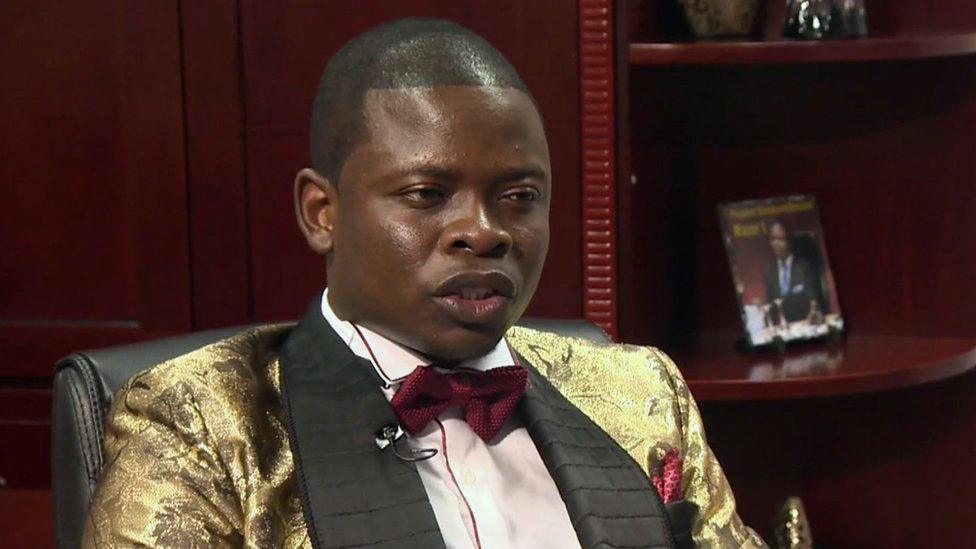Reinhard Bonnke: The man who changed the face of Christianity in Africa
- Published
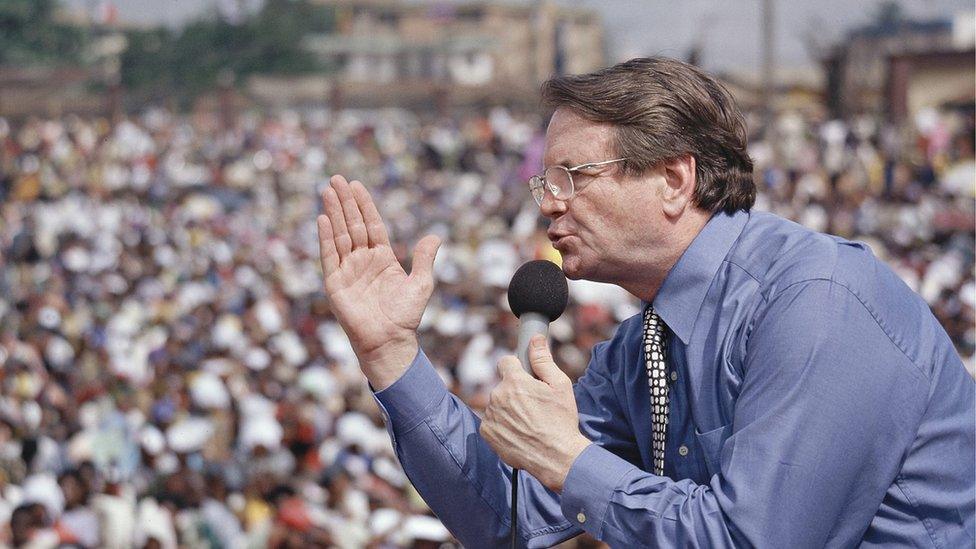
Bonnke always challenged his followers to take the mantle from him
German-born evangelist Reinhard Bonnke, who attracted massive crowds in Africa during decades of preaching, is being mourned by millions of Christians across the continent following his death aged 79. Kenyan writer Jesse Masai looks back at his influence.
With comparisons ranging from British "Prince of Preachers" Charles Spurgeon to American televangelist Billy Graham, Bonnke's status as the father of modern-day crusade preaching and healing in Africa is not in dispute.
Across the continent, huge week-long church rallies are now commonplace, characterised by mass mobilisation, big tents, colourful podiums, sophisticated public address systems, local language translators and, in some instances, evangelists who mimic Bonnke's oratory and stage antics, including how he firmly gripped microphones.
At the end of some of his sermons, he would ask who in the crowds was hearing God's call to take the microphone from his hands.
His message of redemptive hope became important, particularly in African nations affected by drought, civil strife and other tragedies.

Who was Reinhard Bonnke?
Born in 1940 in Königsberg, Germany
Founded Christ For All Nations (CFAN) mission organisation in 1974
CFAN claims Bonnke oversaw more than 79 million conversions to Christianity
Died on 7 December 2019

Some, like 83 year-old Kenyan pentecostal preacher Wilson Mamboleo - who helped organise Bonnke's forays into East Africa - consider Africa's best-known names on the African Christian scene such as Nigeria's TB Joshua and Kenya's Teresia Wairimu, a direct consequence of Bonnke's early influence.
'Seeing the dead rise'
Bonnke joined Kenya's President Uhuru Kenyatta during the dedication of Wairimu's Faith Evangelistic Ministry Family Church in Nairobi, the country's capital, in August 2016.
"His pioneering, militant approach of open-air crusades was informed by our context. Like the Biblical St Paul, he was aware that he was confronting strong evil forces," says Mr Mamboleo.
His Christ For All Nations (CFAN) organisation, known for its work throughout Africa, claims Bonnke oversaw more than 79 million conversions to Christianity.

You may also be interested in:

At huge rallies - including one in Nigeria's main city, Lagos, in 2000 that was said to have drawn 1.6 million people - Bonnke claimed to heal people using the powers of God.
He also told followers he had witnessed people rising from the dead, although such "miracles" were dismissed by his critics.


Bonnke's crusading approach at times also stirred controversy.
Stephen Mutua, who between 1986 and 2009 served as an international director under him, remembers riots in mainly Muslim Kano in northern Nigeria in 1990.
The Muslim population had been angered that Bonnke had secured permission to hold a crusade.
"In the ensuing chaos, I found myself in an armoured car for the first time in my life, before the Nigerian military airlifted us to Lagos," Dr Mutua recalls.
"Bonnke, who understood Nigeria's religious dynamics, condoled with the nation in a personal message to the federal government and vowed to return."
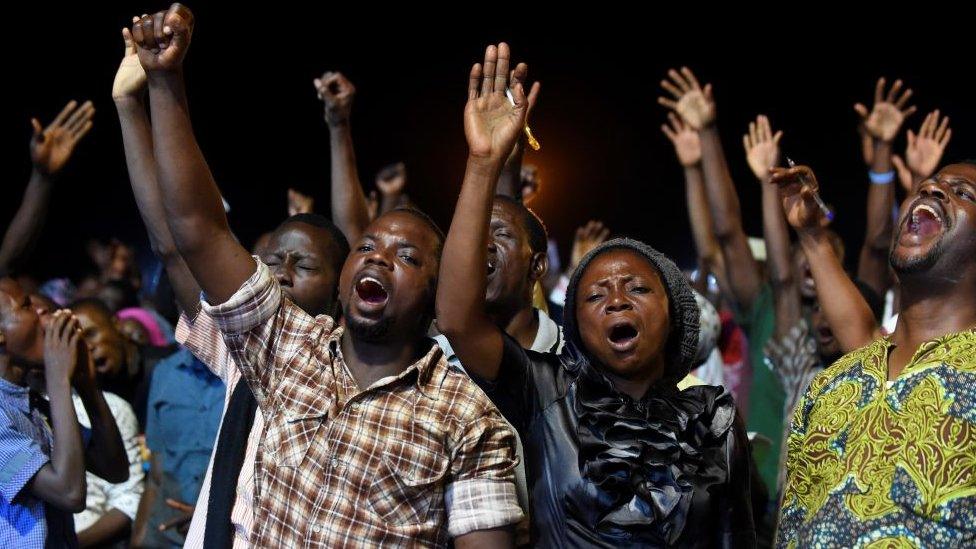
Bonnke held more crusades in Nigeria than in any other African country
Officially at least eight people were killed but unconfirmed reports said hundreds lost their lives.
"After the incident we had our visa applications denied and we didn't return to Nigeria for 10 years."
Dr Mutua, who now heads the African Evangelists Network in Nairobi, said things changed when President Olusegun Obasanjo came into power in 1999.
He notes that Nigeria, the most populous state in Africa, would thereafter regularly welcome Bonnke, more than any other African nation.
Nigerian President Muhammadu Buhari, a Muslim northerner, paid tribute to the evangelist, saying his death was a "great loss to Nigeria, Africa and [the] entire world".
Fake pastors and false prophets shake Christian faith in South Africa
Dr Mutua avers that while Bonnke may have inspired other teachers, pastors, apostles and prophets in Africa and beyond, the evangelist's work remains unfinished.
And while the Associated Press news agency reported in 2014 that Bonnke was living in a $3m (£2.3m) apartment near Palm Beach, Florida, Dr Mutua argues the evangelist was committed to transparency.
"We need to continue in his commitment to scripture and a life of personal integrity for lasting impact," he says.
'Healing ministry was a circus'
Dr Mutua's rosy view of Bonnke is shared by Dr Emily Onyango, a lecturer in Kenya's St Paul's University's department of Theology and Development studies, who believes Bonnke's focus on evangelism has inspired millions of Christians in Africa to have a personal relationship with Christ.
"Although he addressed crusades which had thousands of people, his approach had an individual touch and most people felt that he was personally addressing their needs," she says.
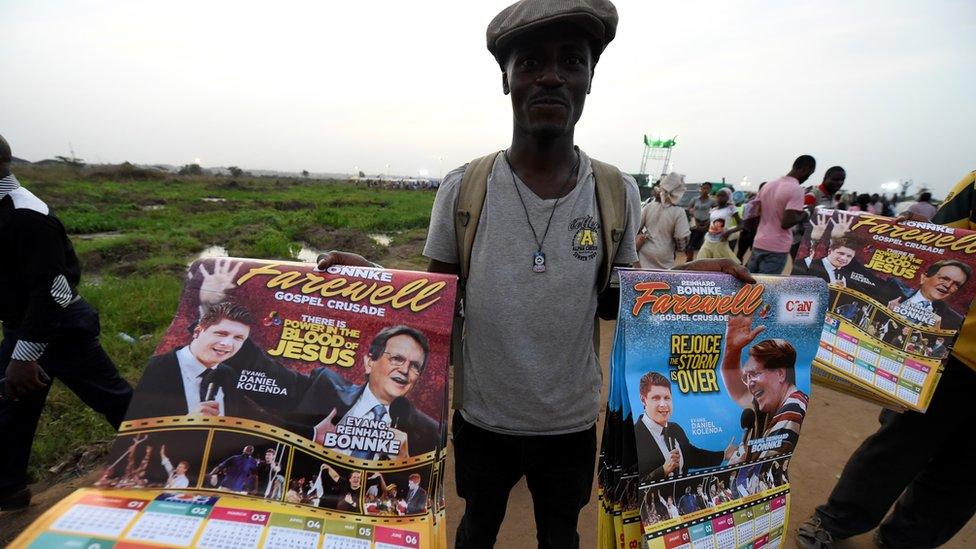
A "farewell gospel crusade" was held for Bonnke in Nigeria following his death
However, Prof Esther Mombo from the university's Center for Christian-Muslim Relations in Eastleigh (CCMRE), says that Bonnke's impact on Africa is complex and may take researchers some time to properly evaluate.
Established in 2010, the CCMRE has been at the heart of several attempts to build inter-religious relationships between Muslims and Christians in the African context.
Prof Mombo argues that Bonnke's preaching did not always foster peaceful co-existence, but rather rivalry and hatred.
"The people who suffered through such utterances were the ordinary people. There are also those who were exploited," she says.
"His healing ministries appeared to be strange, and to an extent a circus. Yet I am sure that through his ministry, some people met Christ and grew in faith."
Bonnke held a farewell gospel campaign in 2017 in Nigeria, after which he stepped down as the organisation's leader because of poor health.
His influence, however, can still be felt in many streets in Africa where self-styled preachers, microphone tightly gripped in one hand, brandishing a Bible in the other, urge passers-by to embrace the Christian message.
- Published4 September 2019
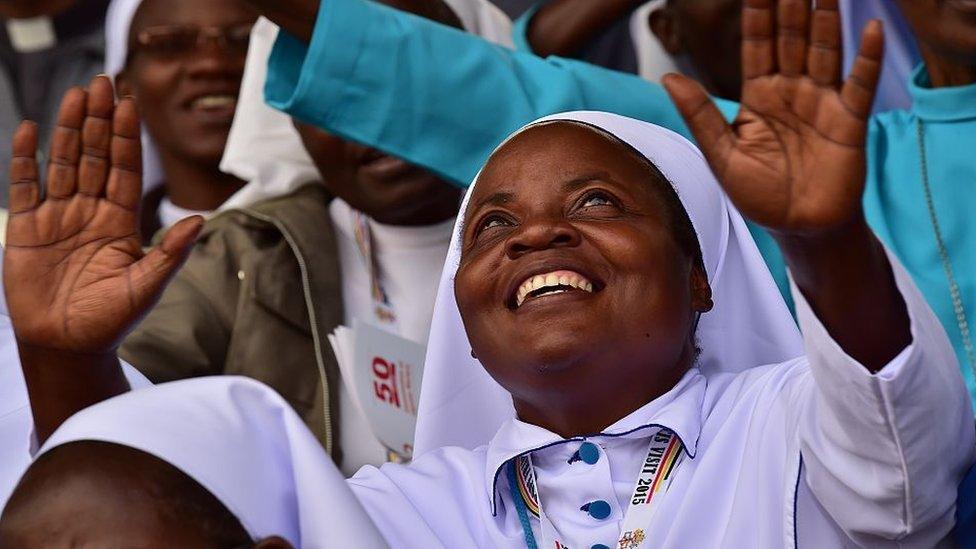
- Published7 February 2016
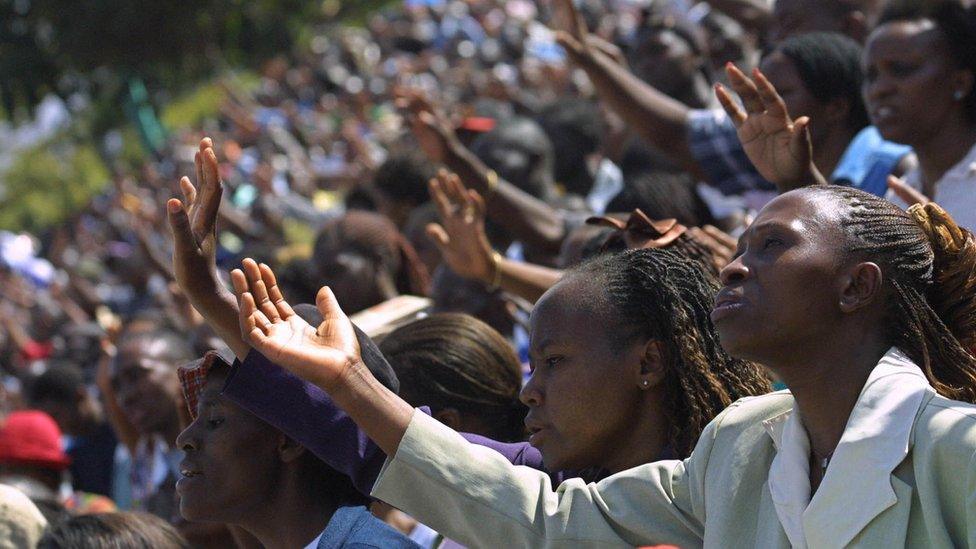
- Published5 March 2018
